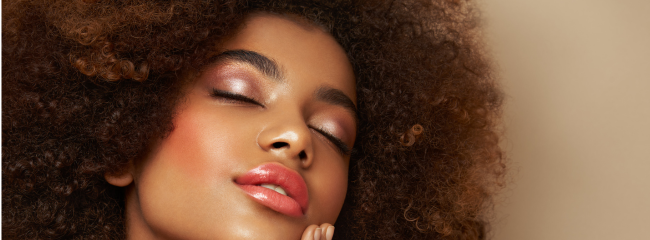FERUARY 11, 2025
Why West Africa is the Next Big Market for Cosmetics and Beauty Products

The beauty industry is booming in Africa, and West Africa is at the heart of this exciting transformation. Dubbed as the next consumer hotspot, sub-Saharan Africa is experiencing rapid economic growth, second only to Asia-Pacific. With a growing population, rising disposable incomes, and an increasing appetite for beauty and self-care, the continent is fast becoming a goldmine for cosmetic brands.
By 2030, sub-Saharan Africa’s economy is expected to reach a staggering $3 trillion, with Nigeria, Ghana, and Cameroon leading the charge in West Africa. The region’s beauty market is set for exponential growth, as local entrepreneurs, multinational brands, and digital beauty influencers shape consumer preferences like never before.
Why West Africa? A Thriving Beauty Market Awaits
Africa’s population is booming. Currently home to over 1.4 billion people, the continent is projected to reach nearly 3 billion by 2065—surpassing China and India combined. This massive population growth, combined with urbanisation and a rising middle class, is creating a strong demand for beauty products. By 2030, Africa’s top 18 cities could have a combined spending power of $1.3 trillion, making them a prime target for global beauty brands. In West Africa, cities like Lagos, Accra, and Abidjan are becoming beauty hubs where consumers eagerly embrace skincare, haircare, and makeup trends.
A Rising Middle Class and Changing Beauty Standards
The African middle class has tripled in the last 30 years, fuelling demand for personal care and beauty products. West Africa, in particular, is seeing an increase in disposable income, with more women and men investing in high-quality skincare, haircare, and fragrances. The beauty industry is not just about looking good—it’s a statement of confidence, success, and self-expression. Interestingly, Africa’s wealthy class is also growing. In 2023, the number of high-net-worth individuals in the region increased by 9%, making it the second-fastest-growing segment globally, after North America. Luxury beauty brands have taken notice, and the demand for premium cosmetics, organic skincare, and luxury perfumes is rising.
Youth-Driven Demand for Beauty Products
One of the biggest advantages for the African beauty market is its youthful population. A staggering 70% of sub-Saharan Africa’s population is under 30 years old. This young, beauty-conscious generation is shaping industry trends, seeking high-performance skincare, diverse foundation shades, and haircare solutions that cater to natural and protective styles. With social media platforms like Instagram, TikTok, and YouTube influencing beauty standards, West African beauty influencers and entrepreneurs are playing a key role in educating and inspiring consumers. Local brands such as Zaron, House of Tara, and R&R Luxury are gaining popularity alongside global giants like MAC, Fenty Beauty, and Maybelline.
Urbanisation and Accessibility Driving Growth
Urbanisation is another key factor fuelling the beauty industry’s expansion. With nearly 40% of Africa’s population living in cities—and expected to exceed 700 million by 2030—beauty brands have easier access to consumers. Urban dwellers tend to have higher incomes and greater exposure to global beauty trends. West African cities like Lagos, Accra, and Dakar are seeing a rise in beauty retail stores, salons, and online beauty platforms, making products more accessible than ever before. E-commerce and digital payment systems are also making it easier for consumers to shop for their favourite products without stepping into a store.
Men Are Joining the Beauty Movement
The beauty industry in Africa is no longer just for women. More men are embracing grooming and personal care, visiting salons for manicures, pedicures, and hair treatments. From skincare routines to beard oils, West African men are investing in their appearance, further expanding the market for male grooming products.
The Future of Beauty in Africa
The African beauty industry is on the verge of a massive transformation, and West Africa is at the centre of this evolution. As disposable incomes rise, beauty consciousness grows, and social media amplifies beauty trends, the demand for cosmetics, skincare, and personal care products will continue to skyrocket. For brands and entrepreneurs, now is the time to invest in Africa’s beauty market. The future is bright, the consumers are ready, and West Africa is set to shine as the next global beauty powerhouse.
Source: beauty-africa.com/post/why-africa-is-the-next-big-market-for-cosmetics-and-beauty-products